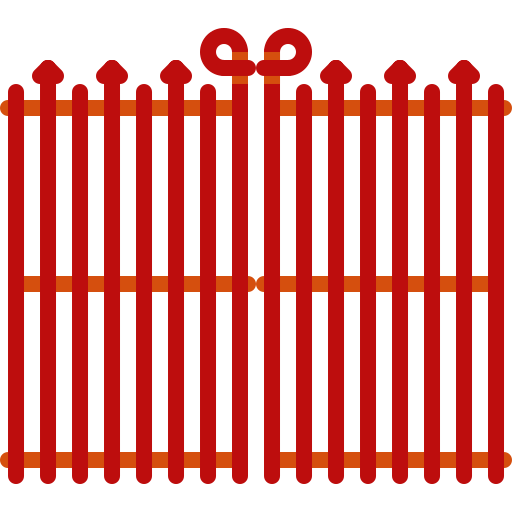
Today’s blog is admittedly a little heavier, a little more academic perhaps; it is a piece stressing the importance of precision in the translation of the Bible.
“I also say to you that you are Peter, and upon this rock I will build My church; and the gates of Hades will not overpower it.”
This original statement made by Christ falls within the conversation that He is having with Peter. The account is chronicled in Matthew 16, verses 13-19:
Now when Jesus came into the district of Caesarea Philippi, He was asking His disciples, “Who do people say that the Son of Man is?” 14 And they said, “Some say John the Baptist; and others, Elijah; but still others, Jeremiah, or one of the prophets.” 15 He *said to them, “But who do you say that I am?” 16 Simon Peter answered, “You are the Christ, the Son of the living God.” 17 And Jesus said to him, “Blessed are you, Simon Barjona, because flesh and blood did not reveal this to you, but My Father who is in heaven. 18 “I also say to you that you are Peter, and upon this rock I will build My church; and the gates of Hades will not overpower it. 19 “I will give you the keys of the kingdom of heaven; and whatever you bind on earth shall have been bound in heaven, and whatever you loose on earth shall have been loosed in heaven.”
Christ is speaking about who He is, and about the building up of the Church, His Church, and in that, He affirms that the gates of Hades will not prevail against that Church.
So many translations have interpreted this passage in what I believe to be an errant way, that the gates of Hell will not prevail against the Church. This understanding leads us to believe that Satan himself, or his future abode (think jail), will not be victorious in thwarting the Church. But this is not the thrust of the passage here in Matthew 16. The great enemy, being separated from God, is the enemy of death, both physically and spiritually. The enemy spoken of here is not Satan. Paul defines this death in 1 Corinthians 15:26, therefore death is the final enemy to be overcome.
What Christ is affirming to Peter is that He will build His Church based on the truth that Peter had just professed, that Jesus is the Christ, the Messiah, the anointed one, and that He is the Son of God. He will build His Church based on thatGospel. Individuals will be offered deliverance from death; new life will be granted through the work of Jesus Christ upon the cross. Therefore, death will have no victory any longer to keep people in the grave, nor from the Gates of Heaven.
It is not the gates of Hell which will “not prevail,” as is so often mis-quoted, it is the gates of Hades, those which hold people in the clutches of death. Hades is the abode of those who have died, who are awaiting judgment (See Luke 16:19-31); it is composed of two parts, one, the Bosom of Abraham which holds those destined to life with God; and two, those who will at some point be sentenced to Hell. As a caution, this does not speak to any hint of the errant Roman Catholic doctrine of Purgatory; life eternal is determined this side of the grave.
Some may contend that the “gates” reference may actually point to gates of a walled city; the term thus referencing the strength of a city to guard the occupants from outside forces. My understanding however, is that these gates point to gates of imprisonment; the idea of retention of those inside to suffer eternal death. In Matthew here, Christ is assuring the apostles that death will not be able to imprison souls to death for all time, at least not those who trust in Christ. The Church of Christ will be comprised of previously dead souls, those which were separated from God, yet called forth from the grave to new life by the redeeming blood of the Lamb of God (See Ephesians 4:8-9; 1 Peter 3:19). The gates will fall by the power of the blood, the “keys” to glory.
I believe Colossians 1:13-14 describes this miracle: “For He rescued us from the domain of darkness, and transferred us to the kingdom of His beloved Son, in whom we have redemption, the forgiveness of sins.”
Yes, the gates of Hades will not be able to keep people in a state of darkness; the work of Christ opens those gates, and instead insures life in His name. Through His work, death will fail to separate, and we are given a new “address” in Christ. Halleluiah! As death will have no authority over Christ, it will have no victory against the Church.
Why the word Hades would be so often translated, or mistranslated confuses me. Even some of the more notables get it wrong. I have only to suggest that many have no clear understanding between Hell and Hades, and so the two are conflated. Still, the two locales are very distinct places. Hell is the final abode of Satan and his demons (Matthew 25:41). He will be an eternal prisoner there. He has no authority there. He is not the leader, president, king, or even caretaker. He Himself is under house arrest for eternity. He has no authority over lost souls who are conscripted to be in torment as well. For that matter, in my judgment Hell does not yet exist, and even if it were to exist currently, it would be void of souls, as no great White Throne Judgement has yet taken place.
Those who would seek to impose this translation of Hell upon the Greek word Hades, are imposing an impossible hermeneutic upon the text; it cannot be faithfully exegeted by any dedicated teacher since two different places are indeed being referenced (see also Revelation 20:14 and 2 Peter 2:4 where the same mistake is often made in various translations).
In verse 19, Jesus references the keys which overcome the gates of Hades. These are the “keys to the Kingdom of Heaven.” These keys which unlock and deliver those held in the clutches of death are the Good News, the Gospel which proclaims the victory of Christ through the Cross, and open wide the entrance to Heaven. These keys are in possession of any who shares the Good News.
The lost will move from Hades to Hell after the Great White Throne Judgment. Hell has no exits; no doors, no windows, no tunnels… no gates. The inhabitants are those who have been sentenced to be there for all eternity because they have not accepted His Son as the payment for sin. Their names are not included in the Book of Life (Revelation 20:15).
On this side of the Cross, though those destined to Hell are still temporarily confined to the “rich man’s” side of Hades; those who die in Christ are immediately ushered into the presence of the Lord (2 Corinthians 5:8); not yet in their glorified bodies, but in the security of their Savior.







Thank you for being bold and faithful enough to put this out there! You encourage and inspire us to unite and rally together as brothers and sisters in Christ to stand up for what is right and Holy! 💕🙏🇺🇸